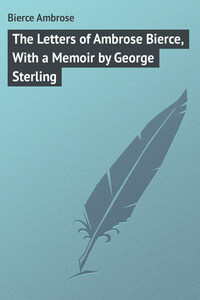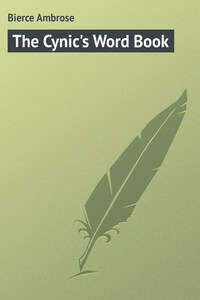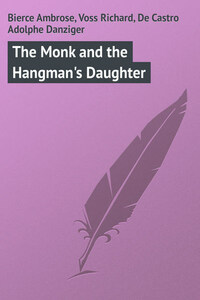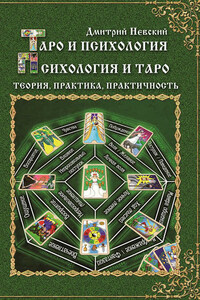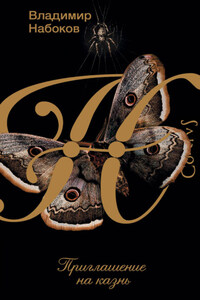by Bertha Clark Pope
"The question that starts to the lips of ninety-nine readers out of a hundred," says Arnold Bennett, in a review in the London New Age in 1909, "even the best informed, will assuredly be: 'Who is Ambrose Bierce?' I scarcely know, but I will say that among what I may term 'underground reputations' that of Ambrose Bierce is perhaps the most striking example. You may wander for years through literary circles and never meet anybody who has heard of Ambrose Bierce, and then you may hear some erudite student whisper in an awed voice: 'Ambrose Bierce is the greatest living prose writer.' I have heard such an opinion expressed."
Bierce himself shows his recognition of the "underground" quality of his reputation in a letter to George Sterling: "How many times, and during a period of how many years must one's unexplainable obscurity be pointed out to constitute fame? Not knowing, I am almost disposed to consider myself the most famous of authors. I have pretty nearly ceased to be 'discovered,' but my notoriety as an obscurian may be said to be worldwide and everlasting."
Anything which would throw light on such a figure, at once obscure and famous, is valuable. These letters of Ambrose Bierce, here printed for the first time, are therefore of unusual interest. They are the informal literary work – the term is used advisedly – of a man esteemed great by a small but acutely critical group, read enthusiastically by a somewhat larger number to whom critical examination of what they read seldom occurs, and ignored by the vast majority of readers; a man at once more hated and more adored than any on the Pacific Coast; a man not ten years off the scene yet already become a tradition and a legend; whose life, no less than his death, held elements of mystery, baffling contradictions, problems for puzzled conjecture, motives and meanings not vouchsafed to outsiders.
Were Ambrose Bierce as well known as he deserves to be, the introduction to these letters could be slight; we should not have to stop to inquire who he was and what he did. As it is, we must.
Ambrose Bierce, the son of Marcus Aurelius and Laura (Sherwood) Bierce, born in Meiggs County, Ohio, June 24, 1842, was at the outbreak of the Civil War a youth without formal education, but with a mind already trained. "My father was a poor farmer," he once said to a friend, "and could give me no general education, but he had a good library, and to his books I owe all that I have." He promptly volunteered in 1861 and served throughout the war. Twice, at the risk of his life, he rescued wounded companions from the battlefield, and at Kenesaw Mountain was himself severely wounded in the head. He was brevetted Major for distinguished services; but in after life never permitted the title to be used in addressing him. There is a story that when the war was over he tossed up a coin to determine what should be his career. Whatever the determining auguries, he came at once to San Francisco to join his favorite brother Albert – there were ten brothers and sisters to choose from – and for a short time worked with him in the Mint; he soon began writing paragraphs for the weeklies, particularly the Argonautand the News Letter.
"I was a slovenly writer in those days," he observes in a letter forty years later, "though enough better than my neighbors to have attracted my own attention. My knowledge of English was imperfect 'a whole lot.' Indeed, my intellectual status (whatever it may be, and God knows it's enough to make me blush) was of slow growth – as was my moral. I mean, I had not literary sincerity." Apparently, attention other than his own was attracted, for he was presently editing the News Letter.
In 1872 he went to London and for four years was on the staff of Fun. In London Bierce found congenial and stimulating associates. The great man of his circle was George Augustus Sala, "one of the most skilful, finished journalists ever known," a keen satiric wit, and the author of a ballad of which it is said that Swift might have been proud. Another notable figure was Tom Hood the younger, mordantly humorous. The satiric style in journalism was popular then; and "personal" journals were so personal that one "Jimmy" Davis, editor of the Cuckoo and the Bat successively, found it healthful to remain some years in exile in France. Bierce contributed to several of these and to Figaro, the editor of which was James Mortimer. To this gentleman Bierce owed what he designated as the distinction of being "probably the only American journalist who was ever employed by an Empress in so congenial a pursuit as the pursuit of another journalist." This other journalist was M. Henri Rochefort, communard, formerly editor of La Lanternein Paris, in which he had made incessant war upon the Empire and all its personnel, particularly the Empress. When, an exile, Rochefort announced his intention of renewing La Lanterne in London, the exiled Empress circumvented him by secretly copyrighting the title,
